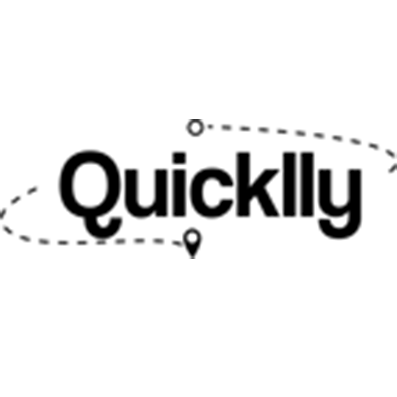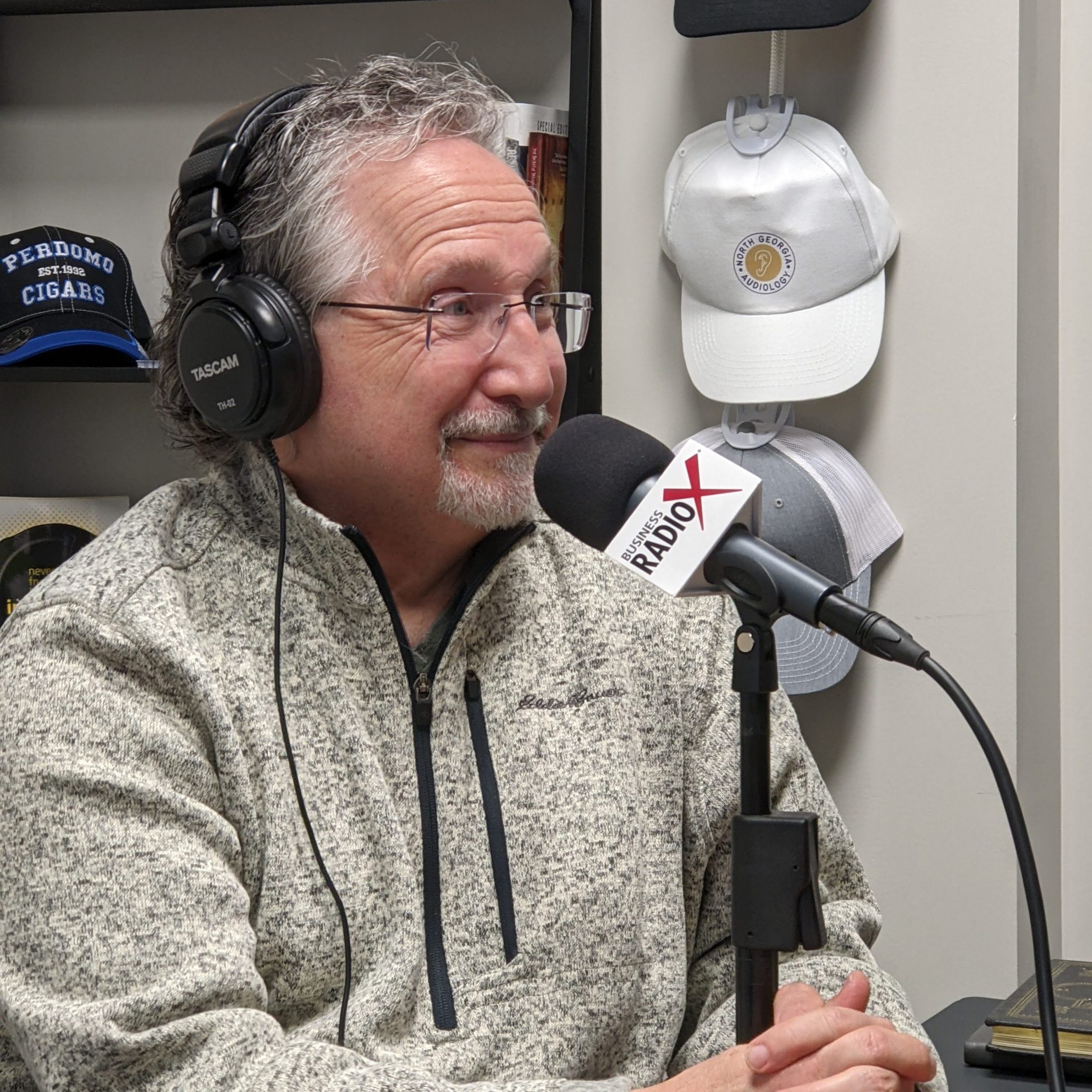
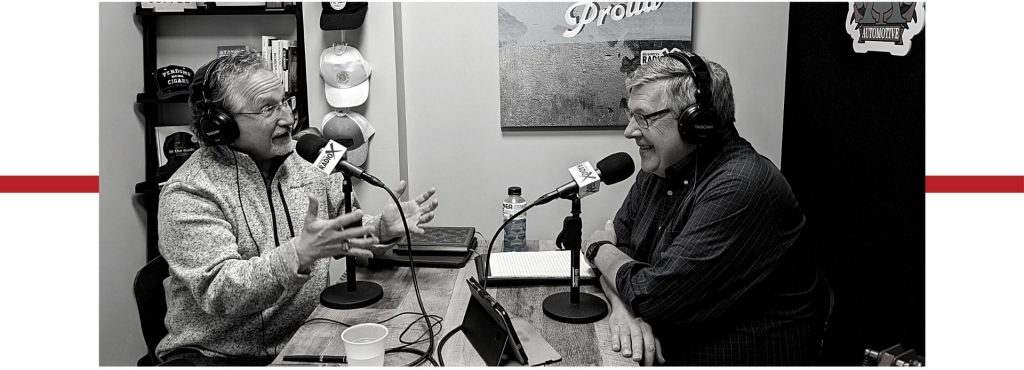
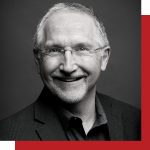 From the time Kevin Monroe was a teenager, he’s been on a quest to make the world a better place. That desire has prompted a variety of professional endeavors leading to launching X Factor Consulting in 2005.
From the time Kevin Monroe was a teenager, he’s been on a quest to make the world a better place. That desire has prompted a variety of professional endeavors leading to launching X Factor Consulting in 2005.
He discovered the Power of Gratitude almost four years ago now, while in a dark place and difficult season of life. Little did he know then, that his embracing gratitude would be the spark that would fuel a movement to grow gratitude globally.
Kevin is known for helping people explore, express, and experience gratitude and believes gratitude is the gateway to abundance and that gratitude is an essential skill for the beyond-COVID world that is emerging.
Connect with Kevin on Instagram, LinkedIn, and Twitter.
 This transcript is machine transcribed by Sonix
This transcript is machine transcribed by Sonix
TRANSCRIPT
Intro: [00:00:02] Broadcasting live from the Business RadioX Studios in Woodstock, Georgia. This is Woodstock proud, spotlighting the individuals, businesses and organizations that make Woodstock one of the premiere destinations in metro Atlanta to live, work and play. Now, here’s your host.
Jim Bulger: [00:00:28] Hello, and welcome back once again to Woodstock, proud here on Business RadioX, where we spotlight and we celebrate some of the individuals that are making a difference in our community. I’m your host, Jim Bulger. Now today, I’m thrilled to give you a chance to get better acquainted with one of the most authentically happy people I’ve ever met. Kevin Monroe is the founder of X Factor Consulting here in Woodstock, a company that is changing both individuals and organizations through an intentional focus on gratitude. And as I’ve personally experienced, as I think you’re going to hear as we talk, Kevin is one of those people that has a unique gift that every time you talk to him, you feel inspired. You always walk away thinking deep thoughts about what he said, but you always feel a little bit better about the world around you too. So Kevin, welcome to Woodstock. Proud.
Kevin Monroe: [00:01:31] And no pressure. No pressure.
Jim Bulger: [00:01:34] No, that’s true. So there’s so much I want to touch on and we’ll go into a lot of detail later. But for those who maybe aren’t all that acquainted with you, let’s start with a brief overall description of X Factor consulting and the work you’re doing.
Kevin Monroe: [00:01:52] All right, so Jim, the way I first off, welcome listening. You’re listening today. I want to say welcome. Thanks. You have a lot of choices of where you listen. And so the fact that you’re listening to us says something about you says something great about you. Wow. The way I I say, I’ve had a lot of interesting, a lot of audacious sounding titles through the years, the ones that mean most to me now are husband, father, papa. That’s what my grandkids call me, papa, friend and Jim. Over the last three and a half years, I’ve picked up this other title that I actually kind of learned to love. Now that’s gratitude guide. So I love the way I say it. From the time I was 13, 14 years old, I’ve known I wanted to make the world a better place. I often think it has something to do. I grew up not that far from here, a couple hours down the road in Perry, Georgia, small town, Georgia. The Coca-Cola commercial, maybe that was what influenced me, remember the people on the hill somewhere in Switzerland? I’d like to teach the world to sing in perfect harmony, right? Have a coke and a smile. I don’t know. But some time from the time I was 13, 14 years old till this day, which has been a lot of years in between. I just wanted to make the world a better place. I wanted it to matter that I live, that I passed through.
Kevin Monroe: [00:03:24] And so that’s taken me down a very zigzag path through the years, done different things. But ultimately it led to starting a business 17 years ago. Now this business X Factor consulting. It was kind of funny when you and I were kicking some ideas around. I said something to you when we started the business. X Factor X Factor meant a lot of things to me. X meant, you know, there was this mysterious quality or quantity. It also meant excellence and it meant multiplication. Those were all of those things. So we had this idea. X Factor consulting. Well, I think over the last three years, I really zeroed in on what is the ultimate X Factor and that X Factor is gratitude. The gratitude. If you go to my website, you’ll see these words, and I remember it was my web designer, Susie, that put them on the site when she was doing work and she she showed me the type of the site, the prototype and right there on the front, it says gratitude changes everything. And I’m like, Wow, Susie, gratitude changes everything. She says, Well, I got that from you. You do believe that, don’t you? And I’m like, Well, well, yes, I believe it. I just don’t know if I’m ready to make that the claim to the world, right? What if others don’t believe it’s because it doesn’t matter? Do you believe it? I’m like, Yeah, I believe it. Gratitude changes everything.
Jim Bulger: [00:04:50] So that was, as you said, 17 years ago, yep. And. So as a gratitude guide, the work you’re doing right now is you’re using a number of different channels and a number of different ways of doing that. Talk about a few of those.
Kevin Monroe: [00:05:09] Well, OK. And I guess somewhere we’ll talk about the story that led to this. But but what I do now? I had an epiphany. Well, it was about two years ago this time, friend of mine Tracy Fenton. She’s the founder of an organization called World Blue Blue, creating freedom centered workplaces around the world. Tracy said to me, Hey Kevin, would you do a webinar for our leadership cohort? And I’m like, Of course I would. Tracy, what do you want me to do it on? And Tracy like Duck Gratitude and Jim. That was that first moment when I started realizing, Wow. People have now identified me as the gratitude guy or gratitude guide. And I also realize then that there have been a lot of other things people have identified me as through the years and this idea of being the gratitude guy or guide. You know, if I go to my my grave and this is what’s written on the tombstone, here lies one grateful fella. I can live with that, right, well, maybe I die with that, but but there have been a lot of worse things said, right? Oh, he was a curmudgeon. He was always cranky or those types of things. I mean, those things. Wow. You know, he just always seemed angry. Is that what you want said about your here? Lies one grateful fellow. So when when Tracy asked me to do a webinar, I said, Well, gosh, Tracy. Doing a webinar just doesn’t seem the right way to approach gratitude. And she goes, What do you mean? I said, you know, a talking head that shows up for, you know, how most webinars are. They introduce the speaker, the speaker comes on, and it’s a one way push of information for forty five minutes. Blah blah blah blah blah blah. Let me tell you about this.
Kevin Monroe: [00:06:58] You know, in the world, in the space of gratitude, we could talk about what happens in your brain and in your body, oxytocin and and serotonin and all of these, you know, things that are happening neurobiological to you. And then at the end of that, people go, Well, that was interesting. I might well, that just doesn’t seem to be the approach, I said. She said, What do you want to do? I said, I don’t know. Let me think about it. So over the next seven, eight days, I was thinking about it and I live right down the street here. We live in Farmington. All Arnold Middle Road live there for almost 30 years now and I walk every day and one morning on a walk. It just hit me. I stopped, whipped out my phone and in five minutes created the outline what I wanted to do. And I went back to Tracy and I said, Hey, Tracy, I don’t want to do a webinar. I want to do a gratitude encounter. And she goes, OK, what’s that? I said, it’s an opportunity for people to explore, express and experience gratitude. And Jim, it was a week or so later I landed on this phrase that gratitude experience is better than gratitude explained, right? So a webinar is inviting people to explain, you know, and that’s the talking head. Mm hmm. What difference does that make now? I have an intellectual understanding of the benefits of gratitude, but I’m no more grateful than I was before. I’ve not expressed gratitude. So what? What I do and what I’ve done over these past two years is create environments where people do those three things explore, express and experience gratitude. And that is what shifts something in us and shifts something in our world.
Jim Bulger: [00:08:43] Now, one of my favorite things is to hear about the journey that people and businesses have gone through to get where they are now. So over those 17 years. Talk about some of the major milestones you’ve experienced in how X Factor has evolved over those years.
Kevin Monroe: [00:09:03] Yeah, so you know, I love this question. As I said, X Factor kind of took on my quest in life and that was to make the world a better place. So when we started in two thousand five and when I think back then we set out to serve nonprofit organizations and in two thousand five, I would say the nonprofit sector pretty much had the lock on the do good part of the world, right? And there are all kinds of nonprofits, and they’re addressing different issues or different concerns focused on different things human services, arts, education, you know, those type poverty alleviation, homelessness. And so we set out to help small and medium sized nonprofits because most nonprofits and nonprofit leaders you probably have traveled this month. Most nonprofits have a cause that they’re really passionate about. But when they start a nonprofit, then all of a sudden they understand they have a business that they have to lead. So what we started doing was helping people address the business side of nonprofit to free them up, to do the service side, the cause related side. And so we did that for a number of years. And then all of a sudden, 2008 through 2010, I went to graduate school, went to Gonzaga, got a master’s in organizational leadership. I chose Gonzaga because it was one of the few graduate schools in the country with a focus on servant leadership, and I was drawn to servant leadership.
Kevin Monroe: [00:10:35] So I mean, grad school at Gonzaga. And I by that time, I’d been blogging for years, had several blogs. We had three blogs that we wrote in the nonprofit sector. Two of those I wrote, one a business partner wrote, and we had this following. And then all of a sudden I started writing more about servant leadership and this this two years grad school at Gonzaga opened up a lot of things in my mind, and at that time, I started realizing the world has changed, right? And one of the changes in the world was so much social entrepreneurship, social corporate, social responsibility. Companies like Tom Hughes have come along that are create this for profit model that ties doing well with doing good. They’re making money, but every time you buy a pair of Tom’s shoes, they’re giving a pair of shoes. And now you have bombas socks doing the same thing with socks, and you have so many corporations that were looking for ways. How can we to make the world a better place? So that’s happening in the world. I start working in this field of leadership and I was writing blogging about servant leadership and about that time I’m introduced to a I meet a guy on Twitter, and he was the incoming CEO of the Greenleaf Center for Servant Leadership.
Kevin Monroe: [00:11:52] Robert Greenleaf is the guy who coined the term servant leadership in 1970 with an essay, The Servant as Leader. And then a few weeks later, I’m offered the opportunity to launch a consulting arm of Greenleaf Center for Servant Leadership called Greenleaf Consulting Partners and help businesses. Business leaders apply and implement the concepts of servant leadership. So that created a new opportunity. We’re still making the world a better place. We’re helping leaders who want to put people first in the way they lead, apply and implement servant leadership so that just gradually open doors. So two and a half years I do work. It was all contract work. I was always I was never an employee, always a consultant still did that through X Factor. But doing this work and then all of a sudden that, you know, things just evolved, right? And now I’ve understood, and I remember I was in Cartersville one Sunday morning sitting under a big oak tree, and I realized there were three two word pairings that described all of the organizations that I had worked with that I loved working with that these organizations. One of these three two word pairings applied to them or two or the winning trifecta, all three, they were either purpose driven, people focused or values based.
Kevin Monroe: [00:13:18] And those were the kind of companies that were drawn to servant leadership. They’re drawn to servant leadership because they’re in the world to advance a cause, serve a purpose. They want to take care of their people or, you know, one of the best, most highly respected servant leadership organizations on the planet. Headquartered here in Atlanta, Georgia, Chick fil A, they hit all three of those purpose driven people led value space. Sure, right. And so when you look at organizations like that and Mark Miller, who was at that time senior vice president of Chick fil A, wrote books on servant leadership and. The principles that Chick-Fil-A put into practice, so you had organizations like that and that just opened the door to where I started doing more leadership work in the corporate sector with these types of organizations. So when I look at this, Jim, I realize now I’m probably on version. If you think of the business like a software, we’re on version 5.0 of the company, right? 1.0 was this nonprofit consulting firm, 2.0 was this leadership firm. And then we started into the purpose space, which was really 3.0, and then we were trying to figure out 4.0. And that was more around purpose and values and culture, recognizing that the companies that are purpose driven people led, people, values based.
Kevin Monroe: [00:14:49] They’re also really and you get this from your job, your work with work, thrive. Want to have a culture sure that that represents those values, a culture that values people? So I started doing a lot of culture work that also involved leadership. And then there was this little thing happened. And I don’t know. Maybe you realize it, or maybe you don’t. Seven hundred and seventeen days ago today, seven hundred and seventeen days ago today, the world changed. It was seven hundred and seventeen days ago today when the World Health Organization declared the global pandemic COVID coronavirus and the business I had, like so many other people, evaporated. Mm hmm. Right. I mean, because what I did was a lot of in-person events speaking at corporations conferences and every one of those that was booked was all of a sudden UN booked one of my biggest customers. They said, OK, we’re going to do this. We’re going to put it off a quarter. Ok, we’re going to put it off two quarters. We’re not going to do anything until late 2021. Oh, we’re not sure we’re going to do anything in 2021, right? And and so there was just this. Opportunity called no business
Jim Bulger: [00:16:13] Well, and I know that as we were talking back in twenty eighteen, there was a shift in the business. Talk a little bit about that.
Kevin Monroe: [00:16:24] Oh, and I happen to bring that journal today. Oh, so I’ve pulled this journal out. So twenty fifteen I reconnected with an old mentor. I met him in early 2000. I meet him in twenty fifteen. Yeah, twenty fifteen. We reconnect. Twenty know. Twenty sixteen twenty sixteen when we reconnect. And he says, Hey Kevin, would you join me in praying fifteen minutes a day? And I looked at my. Are you serious? I haven’t prayed 15 minutes in the last year or the last two years, and you want me to pray 15 minutes a day? And he said, Well, what I mean is by pray 15 minutes a day is is open. Your Bible, sit down with a journal and just see, you know, if there’s something you want to say to God, God wants to say to you, I’m like, OK, I’ll give it a try. At that time, I was in time blocking mastery that came out of Gary Keller’s work with the book The One Thing, and Gary taught this idea that it really takes sixty six days to get grounded in a habit. It’s more than twenty one. The numbers go from twenty one to maybe two hundred and something, but sixty six days you kind of get in a groove. So I had a sixty six day chart. I was doing some other things to get in the habit. So I started a prayer habit of day one, day two, and I opened a journal and I started writing the day number just to see so.
Kevin Monroe: [00:17:49] I can say that because I mean, you can see right here, I’m not lying April 17th was day seven forty four right day seven forty four, so day seven forty four of this journey April 17th. Now I have no idea if this had some bearing that it was two days after April 15th is why I found myself in such a dark, depressed state that morning. But business, you know, I’m trying to figure things out in business. Business wasn’t. Well, let’s just be honest, business wasn’t good, it wasn’t great, but it wasn’t good, I was struggling and and I’ve had as I look back over life, I can see three periods where I really dipped into depression, you know, and had those bouts of yeah, the first one happened in 2002, when I had left Corporate World joined a high tech startup that. September 11th, 2001, buried that high tech, high tech startup, as well as many other things in our country, right? And and so we the business failed. I was trying to figure out what to do went into this dark space. But fast forward to 2007 20, 18, April 17th. It was one of those mornings. Now I’m a morning person. Your morning person, Jim.
Jim Bulger: [00:19:04] Not at all. Not at all. So, oh, there’s owls and robins, and I am definitely in Team Owl.
Kevin Monroe: [00:19:10] Ok? Ok, so I am up usually between 4:30 5:00 in the morning without an alarm clock just up ready to go. And but that morning, that morning was like, no, there was just I couldn’t get out of bed, right? Yeah. And you know, I woke up several times like, No, I’m not feeling it. There’s nothing here, just don’t want to get up. And I recognized that I’ve known that before, when that starts coming. I’m at the precipice. I’m at the edge, right? These are tough days, dark moments. But if you linger there, you start going down the slippery slope and pretty soon you’re in about a depression again. So I knew that was coming, but I woke up that morning, seven, dragged myself out of bed, go into my office and having this daily routine. I’m a big believer in daily routines, rhythms, rituals, whatever word you call it, care to call it. For me, it’s more I think of it as a rhythm and a ritual than than just routine. Part of that is reading something inspirational. Part of that is prayer, meditation, listening to silence, or some kind of guided meditation for ten minutes. Well, that morning there was nothing I just didn’t want to block. Right? Maybe, maybe. Gosh, could it be possible that somebody’s listening to us right now that you can relate to this, that your morning this morning was? I didn’t want to get up.
Kevin Monroe: [00:20:36] I’m not feeling it now, right? It’s Day seven 17 of a pandemic. Life is tough right now for a lot of people. That morning I couldn’t get up. I finally got up, opened my prayer journal and there was just nothing to pray. And I wrote these words and they’re still here. Holy Spirit, you are the creative spark of the universe. Spark creativity in me. Close the book laid down on the floor. It’s in what I consider liminal space that that moment between you’re still partially awake, partially asleep, you’re in and out. You’re not, you know, it’s a it’s a days, right? It’s just this fog light down on the floor in my office was was that was the prayer I’d prayed. And forty five minutes later, I sat up erect and there was an idea, an idea. And the idea was like eighty five percent fully formed when it was there. When I sat up and it was to host what we would call the extraordinary experiment, that we would create a 90 day program 13 weeks and over those 13 weeks each week would have a challenge and we would invite people into the challenge. We’d lay out the challenge on Monday. On Wednesday, we’d give some additional resources. On Friday, we’d ask people to reflect back and see what happened in your life this week and when you did these things that we invited you to consider and find what you wanted to do.
Kevin Monroe: [00:21:59] Might your life feel a little more extra ordinary, right? Because I think a lot of people are like me when I look in the mirror. Any time I look in the mirror, I see a guy that’s just an ordinary guy, right? I’m a few pounds overweight of where I’d like to be right now was never super athletic. I was always the last kid chosen for the team. Gosh, that experience happened a couple of months ago at a family thing. We were choosing teams for a family game and our our granddaughter, Emma picked her one year old brother who can’t do anything drawing before she picked me to be on her team, right? So it’s just this funny thing. But. Could we feel a little more extraordinary? Could life be more extraordinary? And so we laid out 13 weeks and weeks, six of those 13 weeks, we labeled the gratitude challenge. And in that week, as I said, we did a video on Monday. So on the Monday video, when we’re preparing that, it’s the first time in my life when I began questioning, is there a difference between being thankful and being grateful? What does it really mean to have gratitude? And Jim, those 13 weeks set me on a different path began to spark new possibilities. And and it really opened the door to this world of gratitude.
Jim Bulger: [00:23:31] Well, and let’s do let’s do a deeper dove into that because. It sounds like such a simple idea, the need to be grateful, and I think most people, if you were to ask them, they consider themselves to be grateful, to be appreciative, to be thankful, to count their blessings. You know, Thanksgiving, we go around the table and everybody says what they’re thankful for. And the typical responses come up. I’m thankful for family and health and friends. And as you say, a lot of people use the terms thankful and grateful interchangeably, yeah, but you see a real difference between those.
Kevin Monroe: [00:24:10] Talk about that. Well, I’ve discovered a difference between those part of it out of my own experience. So I think about this. So I grew up, as I said in Perry, Georgia, small town, I remember. And I was taught and I was going to say a lot of our listeners, you know, growing up, especially around Woodstock, where where deep south we’ve been taught manners and being thankful is part of good manners. I remember the time I’m probably six years old. I was a little chubby kid. My dad cut my hair every two weeks, set us up on a chair, you know, and just buzzed it back. So I had this buzzed head. My parents left me for the day with the neighbors, the Richardsons and I remember and I don’t remember whether or not my mom pointed her finger. It seems like she did. Remember your manners, son. Remember your manners. You’re going to be at the Richardsons. So Mrs. Richardson. So this is, you know, like nineteen sixty five. So I’ll just be honest, she fixed me a sandwich right now. Today, she would have prepared a sandwich, but we just said she fixed me a sandwich. She hands it to me on a plate and I hear my mom’s voice. Remember your manners and I look up at her and I say, You’re welcome.
Kevin Monroe: [00:25:24] And she rubs my fuzzy little head and says, Nice try. I think you meant thank you. Right. So that’s that. But but what does that typify? Besides my confusion, it typifies this transactional nature, which is what we often attribute to saying, Thanks. And you’re listening. I’m wondering, did you drive? Did you go through a drive through today? Did you interact with a barista? Did they hand you a cup of coffee and did you say thanks? Or, you know, maybe just grunt. But if you did say things, did you actually think about that and take the cup of coffee and think about, I’m sitting here and I see all my coffee logo on the wall of the studio. You know, my friends, Harry and Leticia and Al, they are the farmers. They are related to the farmers that grew the beans. And I was at all coffee earlier this week and the semi was unloading a trailer full of beans that had come from their fifth generation Honduran farms in. Honduras. So they know, and when you drink muffins roasted on the coffee, there’s actually a Marvin who grew the beans, right? So do you think about? Hmm. I think about the farmer that grew the being, the people that harvested the beans, the people that roasted the beans, the people that bagged the beans, the people that shipped the beans, the people that unloaded the beans, the people that put them on the truck, the people that shipped them from the truck to the the Roastery.
Kevin Monroe: [00:26:49] The people that roasted the coffee, the people that now get that deliver it to your local coffee shop, wherever that is. And then the barista brews it. Hand you a cup and you go, thanks. Or do you look at the barista and make a human connection to them in the moment? This is what my dad taught me. If somebody is wearing a name badge on their uniform or on their shirt. That’s for your sake, not theirs. They know their name, they don’t have to look and go, Oh yeah, I’m Kevin. No, it’s for our benefit. What if you engage the barista by name and you go and you say, Hey Jim, man? Thanks for this awesome cup of coffee. It looks like you really put yourself into making this today. Thank you. Right. And you made my day or whatever that is right now. All of a sudden we’ve stopped being transactional and we’ve elevated that. Now, if you want to talk about the ultimate transactional expression of thanks, I think back I grew up when Kmart’s were around. You remember Kmarts?
Jim Bulger: [00:27:50] Absolutely.
Kevin Monroe: [00:27:51] So Kmart’s back in the day when I shopped Kmart’s, they had the cash register. No, no scanners, right? And the the cashier would have to punch in the numbers of everything. Well, there was a little square piece of of a laminated paper on every Kmart register, and it said, T y yfc Katie. Thank you for shopping at Kmart today, and every cashier at the end of every transaction was supposed to say to the customer, What
Jim Bulger: [00:28:28] Thank you for shopping at Kmart today?
Kevin Monroe: [00:28:30] Now did they really mean that? Were they thinking, Wow, you, you made my job possible? No, that’s transaction. Now I will tell you my fate. One of my favorite stories of when I saw this different, I was I don’t remember where I was flying in from back in the day right before COVID. I used to fly a lot. One day I was flying, I’d been upgraded. So I’m in the front of the plane on Delta and this flight attendant, she’s coming down the row and she stops at every row and she bends down on her knees and she looks to the people on her right, the left side of the plane. She talks to them. Then she looks to the people on the left, and I happen to be on her left the right side of the plane. She comes down. I’m about four rows back in first class. She gets star rows. She talks to the people across. Then she turns to us and she says these words. I love my job as a Delta flight attendant. I just love it. It gives me joy in life and its customers like you who are frequent fliers who make my job possible. Thank you for flying Delta now. Every Delta flight I’ve ever been on. There’s some point when a flight attendant comes over the P.A. Hey, we want to welcome all of our medallion members today. Whether you’re your gold silver, you know, platinum diamond. Thank you for choosing Delta that goes in one ear and out the other. This lady stopping looking me in the eye and the person seated next to me in the eye. Sharing that, that’s gratitude. That’s gratitude, right?
Jim Bulger: [00:30:10] So it sounds like I mean, this is much more intentional, intentional.
Kevin Monroe: [00:30:14] Yeah, that’s a great word.
Jim Bulger: [00:30:15] And going back to the Kmart story, I know you’ve developed what you call the gratitude framework. Yeah, yeah. And quickly walk us through that.
Kevin Monroe: [00:30:26] Ok, so I developed this gratitude framework as we were. I was creating content for we host a program called 30 Days in the Power of Gratitude. They’re micro coaching sessions over this, and I was trying to take people on a journey and trying to explain this. I was like, How do I explain this? Well, I started reflecting on my journey back when I heard You ought to be grateful. Right? That’s gratitude as an obligation where it’s social convention. And if we fail and maybe it’s a command, right?
Jim Bulger: [00:30:56] And it’s a note on the cash
Kevin Monroe: [00:30:57] Register note on the cash register. Thank you for shopping at Kmart today, right? That kind of thing. That’s that’s our obligation. And if I fail to deliver on something that’s an obligation, what are you normally feel? Guilt, shame. Right, oh, I feel bad, I didn’t do what I was supposed to do. Well, then if we go up the kind of the next level in this is what I consider to be hacked. And there’s so many people that present gratitude as a life hack having a bad day. Stop, pause. Think of something to be grateful for and get out of that, that law. I still believe there’s validity in that. But who wants to stop there, right? So its obligation, it’s hacked. Well, maybe we go a little further and we begin to develop a practice of gratitude. When gratitude becomes a practice, we’re looking for rhythm and routine. You know, write the journal right, right. Three things you’re grateful for today, and there’s nothing wrong with writing three things you’re grateful for today. But I’ve had so many conversations just this week about this. I can do my my three things that I used to be grateful for. I really got that down to where I could do that in seven seconds and check it off the list and say, Well, I’m done. I was grateful today. Was I right? So we’re getting into that practice. Well, maybe you want to go beyond practice and you begin to look for this to become habituated in your life? Right. So then you’re looking for routines or triggers. You’re looking for these things that spark you to remember the habit I have.
Kevin Monroe: [00:32:37] Well, I have a friend. She heard me tell about an executive that carries three stones in his pocket, and the goal is every time he expressed his gratitude, he moves a stone from the right, the left pocket to the right pocket, with the goal being that the three stones that started in the left pocket at the end of the day, they’re in the right pocket. So my friend Christie bought three silicon bracelets that were, you know, attractive starts with them on her left wrist when she pauses to express gratitude moves one from the left wrist to the right wrist. Those are things triggers. Well, it’s good to have habit. Well, what if we go further and what if gratitude becomes our mindset and that it becomes like the operating system of the human computer of our brain? And that anything that comes into our life, we begin to filter it through the lens of gratitude and we begin to find the good things on even the not so good days or the not so good seasons of life, which I think you know something about some of those seasons, Jim. Well, then if we go a little further on this and this framework, to me, the ultimate goal now is where gratitude becomes our lifestyle. It’s our DNA. It’s who we are. Gratitude is not something we do once a day or twice a day. It’s who we are throughout the day and people begin to think of us as grateful people. And then we’re living in joy.
Jim Bulger: [00:34:04] Well, in listening to you and as I said in the beginning, you always make me think and. As I’m listening to you, you know, there’s there’s another continuum that comes to mind, and one is that when we feel grateful and it’s unspoken and it just sits with us. And then there’s expressing it, yep. And then there’s exhibiting it. But I think a lot of it going back to you, talk to most people, they consider themselves grateful. That’s because they feel grateful. They may not be expressing it. They may not be talking to that person stuff and they may not be exhibiting it. I mean. I think gratitude is one of those things you can see in somebody, too.
Kevin Monroe: [00:34:51] Do you agree? Oh man, I so agree on this. So there are three things there, at least, that I want to unpack. One of those, William Arthur Ward, actually talked about this, he said. To feel gratitude and not express. It is like to wrap a present and not give it right. So you’ve wrapped this, you bought a present, you wrapped it up and just leave it right. That’s gratitude. Unexpressed. And now in our work, we ask, What does gratitude feel like? Where do you feel gratitude in your body when you’re feeling grateful? Maybe it is watching a sunrise or a sunset, or maybe it’s enjoying a meal that your loved one prepared for you? Or maybe it’s holding that newborn, baby or grandbaby and looking at the the majesty of this new creation and all of us, I mean, you’re feeling something right and it’s overflowing in your heart. And so how do we then express gratitude? And then what was the third thing there? I don’t know. It slipped me at the moment. It’ll come back, Jim.
Jim Bulger: [00:35:52] Ok, well, you know, while this sounds like a personal development, yeah, yeah. Internal individual concept. You’ve been very successful in instilling the need for gratitude into groups within companies, within organizations. And I think while some people may think that’s just a nice thing to do or a good behavior. You found it to be a necessary and critical component of a successful organization, so let’s talk a little bit about that and the measurable benefits that it has an organization.
Kevin Monroe: [00:36:29] So that was the third point, that was the third point a moment ago. Now that there is something right, it’s one thing to feel gratitude personally. And I will tell you, I mean, here’s how I stumbled on this and where I want to go is there’s something magical when we do gratitude in community as part of a group. Now we I stumbled on this. I stumped. So in twenty nineteen, yeah, twenty nineteen, we started hosting gratitude challenges and these were all email based and we had a 10 day program that we were inviting people into. And and we ended up having gosh, we ran 20 challenges, had 2500 people from 53 countries of the world. Join us in these challenges. We started having problems trying to get email delivered right and emails were getting caught in corporate servers that they were getting to the server, but they were not getting through the server to the desktop. So we’re looking, how do we fix this? How do we fix this? And I remember a community based platform, so we went to this community based platform simply to get away from email as the delivery vehicle.
Kevin Monroe: [00:37:41] Mm hmm. When we I still remember the very first challenge we hosted on a community based platform, we have a couple of hundred, well, 300 people in this challenge. And all of a sudden and we’re just sharing a daily prompt is what we were doing at that time. And a daily prompt could be like the beauty of nature. And you know, where what have you experienced in nature lately that sparks or inspires gratitude in your your life? Share that post a picture. And all of a sudden people started posting pictures and folks were like, Oh wow! And and global community. We’re seeing sunrises from whales or sunsets in Wales and Australia coast and, you know, all parts of the world. It’s like, Wow, wow, wow. And then somebody would say, What are you grateful for? Related We’d do the family challenge or the favorite book challenge or mentor challenge and people and somebody would write something, and I’d read what somebody else wrote, and that sparked additional gratitude in me. And somebody else would share something. And it was like, Oh, wow, when we share gratitude, it grows even deeper.
Jim Bulger: [00:38:51] It’s contagious, it’s
Kevin Monroe: [00:38:52] Contagious and it gets better together. And so, Jim, I’ve never read about that experience. I mean, this wasn’t something I read in the literature and then went to do. We just discovered this in the trenches, and then I started hosting events, more events. These gratitude encounters where we bring people into a group. I still do this doing one. This coming Tuesday, 12 noon Eastern Time. Feel free to join us. You’re listening. But we do these gratitude encounters and what people say. Gratitude allows them to connect quickly, deeply with other people. We have people from around the world join come in as strangers have this experience. And at the end of an hour, they they say, not me, say we arrived as strangers. We’re leaving as friends, right? The shared experience of gratitude allows us to connect with people of different ethnicity, people of different culture, different language, different faith. But we realize how much alike we are.
Jim Bulger: [00:39:55] Now that’s the pandemic we need.
Kevin Monroe: [00:39:57] That’s absolutely, absolutely. So then you take this into the workplace. Yeah, yeah. So I’ve had the opportunity. Oh, OK. So I started hosting gratitude encounters. I did the first one in August 2020. Then in September 2020, I was on a morning walk. September 10th, walking through the neighborhood in this question was just in my mind of all of the things that energize and excite you. What is the one thing that has the broadest appeal in the greatest impact? And for me, I knew then my answer was immediately gratitude. And that was the day, Jim. That was the day when I went officially all the way in to developing a gratitude business and a consultancy. And what we’d really say is that we’re growing a global ecosystem of gratitude. And I hosted I started hosting these monthly sessions in October. A guy attends the October one in November. He goes, You know, this is a commercial service, don’t you? And I’m like, No, I didn’t. He goes, Let me help you. So we put it together as a service. We started promoting these and then we started offering these two companies. And and now I can say, I mean, I remember the first company, Opera and Domino’s out of New Mexico hired me.
Kevin Monroe: [00:41:12] December 16, 2020 did the first commercial gratitude encounter. And this was a team that had had a lot of hardships to overcome through the gratitude. I mean, through the pandemic, right the first nine months of the pandemic. They were in a tough place and then all of a sudden, through gratitude, they started having breakthroughs and they started building things. So in 2021, they wanted to build on a platform of abundance. That was their theme. They said, Can you help us with abundance? I’m like, Wow, wow. Gratitude is the gateway to abundance. What if we started doing gratitude? So we did gratitude encounters with every department in their organization? They started working mindful mindfulness moments and gratitude moments into every meeting they hosted. Wow. And they began with mindfulness moments. And what are we grateful for? And they started seeing this shift throughout their culture, and that’s what we’ve seen. Other companies where they see that gratitude creates a much more positive culture, a much more committed team. And so we’ve started doing these type things, all kinds of different things companies do and all size companies doing it.
Jim Bulger: [00:42:26] Well, I’m going to guess both from the work you’re doing and the work I do that when you have that kind of a culture. It raises productivity. It increases efficiency, engagement, engagement, employee retention. People tend to stay in environments that they
Kevin Monroe: [00:42:45] Where they feel appreciated.
Jim Bulger: [00:42:47] Well, you know, there’s been research for years and years and years. The number one reason why people leave companies is they don’t feel appreciated, right? And you actually make a commitment to these companies of what an immediate difference you can make, right?
Kevin Monroe: [00:43:04] Yeah. So we’ve been tracking things for 18 months now, and we finally realized that one of the metrics for companies that are really focused on the happiness of their employees. And there’s a lot of research around that, but we can boost employee happiness by twenty five percent in an hour. Wow. And if we don’t, we’ll give you your money back. But I’ve done this. And what? Two weeks ago today, two weeks ago today, I was doing sessions for Pfizer Canada, and in the final we asked people, What’s something you’re carrying with you from this session today? And the first response was the happiness I feel right now. Hope it lasts a long, long time. Right? Because when you. Ok, Wayne Dyer said. When you change the way you look at things, the things you look at change. That’s what gratitude does. Gratitude provides you a different lens through which to look at. And all of a sudden you’re seeing that your your life is a life of abundance. Your work well, rather than just being all of these things you complained about. There’s some really good things here.
Kevin Monroe: [00:44:17] There’s some amazing people here. Our company has values. One of the things we do is is gratitude for values. What’s a value you’ve seen in place in how your company makes decisions or how you relate to people, employees, vendors, clients and all of a sudden you start hearing stories? I mean, the first time I ever did this, one of the stories this was right after the summer race riots of 2020, there was a company in Canada, Biggio. One of their values was diversity and respect, and some of the ethnic minorities that were in the session said I heard them tell these stories that, hey, last summer when when this was all going down, my boss or my boss’s boss called me and ask, Are you OK? Are you having any kind of harassment? Anything making you uncomfortable in the workplace or at home in the community is there? And they’re like, Oh my gosh. I felt respected. I felt valued. I saw what had been a word on the wall. I saw it active in the way we related to one another. I’m grateful for that value.
Jim Bulger: [00:45:28] And going back to your earlier comment, too, I mean, this is specific. I mean, it is intentional. It’s not the manager who walks up and down the rows of desks saying, Hey, good job. Good job, good job. This is real intentional. Going back to yeah. So we only have a little bit of time left. But let me run through a couple of things here. One is, you mentioned COVID and obviously over the last two years between the COVID pandemic, the economy, world politics, it’s caused people’s emotions and their views to change. In what you’ve seen through your work, has that had an effect on gratitude, has gratitude increased or decreased?
Kevin Monroe: [00:46:14] Yes. Okay, so no, seriously. So in some places of the world, gratitude has decreased. Right? I mean, man, 717 days. Here’s something I observed. I did not know this. It was day 500 of the pandemic. I was doing a session for a group in Europe, the Public Services People Managers Association of the United Kingdom, PMA doing a session for them. I was in Florida where I was doing the session from woke up 3:30 in the morning and this was the thought in my mind. Hope fades in crisis. Hope fades in crisis now. Things I had said before. Hope grows in gratitude, hope grows in gratitude gratitude. I love to think of gratitude as a catalyst. And I’m not a chemist. I may not have made such a good grade in chemistry, but that’s we won’t go there. But I did look up catalysts. The catalyst is something a substance that causes other things to to grow faster or to react in a more positive way to grow without being consumed in the process. So I think of gratitude is the ultimate catalyst and what grows in in the good soil of gratitude, kindness, appreciation, respect.
Kevin Monroe: [00:47:32] Joy, happiness, all of these things, they grow in the soil of gratitude, so some companies have lost gratitude, right? I mean, there are a lot of companies that have lost gratitude. A lot of other companies have realized that. And here’s what I would say. The shortest way to answer your question is I believe gratitude is absolutely now an essential skill for the world and the world of work that’s seeking to emerge post-pandemic. Gratitude. It’s it’s not an optional anymore. It’s not a nice option to have. You’ve got to have gratitude to, and gratitude creates one of the real benefits of gratitude that we all need personally and in business. Workplace resilience. Resilience being grateful. Boost resilience. People that are grateful have higher levels of resilience. They bounce back more quickly. They’re not as knocked off or knocked down, or don’t stay down as long when they’re knocked down, right? So this whole idea of resilience, it grows in gratitude. So I believe gratitude is absolutely essential for the workplace and the world going forward.
Jim Bulger: [00:48:46] So I have to ask you with with the years that you’ve been doing this and. Being the gratitude guide for so many other people across Geographics, across cultures. How has that changed you?
Kevin Monroe: [00:49:06] Yeah, well. I feel gratitude a lot more often now. And I mean, I say this in programs I lead, I feel gratitude rising up in my body and leaking out my eyes, right? I mean, that’s why I’m moved to tears with gratitude, right? When I see that gratitude really does change things. And when I see experience it, hear stories of the difference gratitude makes. Now I can show you on my phone right here. You can see I have a lock screen. I have a gratitude lock screen. We created these last year gratitude lock screens. Do you know how many times a day you pick up your phone?
Jim Bulger: [00:49:53] Way too many.
Kevin Monroe: [00:49:54] So and I host a lot of programs that are app based programs now. But the last time I checked, I picked up my phone hundred and thirty times a day. One hundred and thirty times a day. Now I have this this lock screen right now, and it’s the one I’ve had ever since we created gratitude lock screens. My mom mine is my favorite and Voss camp quotation. No amount of regret changes the past. No amount of anxiety changes the future. Any amount of gratitude changes the present. So, Jim. Every time I pick up my phone, I see that I have to clear that, but now I’m not saying that every time I do, I pause and express gratitude. But what if 10 percent of the time I pick up my phone, I pick up my phone 130 times a day. What if 13 of those times I pause for just a second and I and so hey, if you want to know when we’re talking about gratitude, what does this look like? I think it is as simple as these three things pause. Notice. Express. So pause and you’re listening right now. Just pause. And here’s something that I often do in exercise. I do this for myself.
Kevin Monroe: [00:51:09] I do this in corporations. Look back over the last hour, the hour before you came into this meeting. What’s something good that happened in that hour? Was there an interaction? Was there a phone call? Was there an email? You know, so what’s something good of the last 60 Minutes? We call this the last 60 Minutes challenge. You can do this as many times a day as you want. Just stop and look back over the last 60 Minutes. Go, what? What really good happened? What do I want to notice from this hour? And when I noticed that, what do I want to express gratitude for? Right. So that Paul’s notice expressed, so I pause. Oh, so something. Wow. Something that’s different in my life now. And this is a 20 20 to fresh reality. I made it. I made a decision in 2020 2022 that every day to the degree I could, I was going to spend moments of absolute silence and stillness. And I actually believe gratitude makes that possible for me. Right, that being grateful allows me to be at peace, to slow down, to push the pause button, to put my phone away and to be in the moment.
Jim Bulger: [00:52:23] Well, and I was going to ask you, I mean, for someone listening. You know, I’m sure they’re inspired by you and they say, OK, I get it, I want that. And what can I do today? What can I do right now? And I think what you just said with the 60 minute challenge is a great tip. I want to ask you to share one other thing that I heard on one of your sessions that I sat in on, and that was the I have two syndrome.
Kevin Monroe: [00:52:51] Yeah. Ok, so gratitude for me. Something else that changes it. It takes me out of any time I hear myself say, You roll the eyes. I have to fill in the blank, whatever that is. Wow, what if we just paused and we use the pause to reframe that? We use gratitude to go, Hmm, I get to do this now, right? This afternoon, I was on a call with a colleague and I was like, Oh my gosh. I have to go meet, Jim. No, no, no, it wasn’t that it was like, Hey, can can we transfer this call from Zoom to my phone so I can get moving to get to the appointment? So there’s something else, Jim. I have pre gratitude now, right? What if you have gratitude in advance for something that’s not yet happened? So this morning I’m thinking, Oh, here’s pre gratitude I want to have not just not just from I have to to I get to, but I’m going to express gratitude in advance that at two o’clock this afternoon, I get to sit down with Jim. We get to go on air and we get to talk real time about the power of gratitude and the gratitude that the difference gratitude will make in your life. And to issue an invitation. So I got one more if you want to. If you want to do something that will grow gratitude in your life, pick up your phone as soon as you finish listening to us. Think of somebody that you are grateful for the difference they’ve made in your life this week. You got somebody in mind. Think of that person whenever it is that you hear this, pick up your phone or whatever the messaging platform you, you use and send that person a message and say, I’m grateful for you, I’m thankful for you. Whatever words you want to use and give a little reason because, right, because you did this, you mean this to me or whatever and see what happens? So feel it, express it and then be deliberate, intentional back to your word, intentional. Communicate your gratitude for someone to that someone.
Jim Bulger: [00:55:05] Well, the reason I ask you to bring that up is that I know it had an impression on me that I have to to I get to because I would find myself during the day, Oh, I have to make dinner. Oh, I have to go to this meeting. Oh, I have to do this. I have to do that. And all of a sudden I’m saying, Wow, I get to make dinner. I get to go to this meeting. You know, how many people would, you know, trade places with me in an instant? And all the things that we take for granted and we just don’t appreciate them.
Kevin Monroe: [00:55:37] So, G.K. Chesterton said, we can either take things for granted or take them with gratitude.
Jim Bulger: [00:55:43] There you go. So as you look to the future, let’s talk about X Factor consulting. What’s the future goals, future vision, what do you want to accomplish?
Kevin Monroe: [00:55:55] We want we want to see a world transformed through gratitude and workplaces of the world transformed through gratitude. Yeah. So I’m not I’m not the kind of guy that that quantifies that and says a million billion. But I want to reach as many people as possible, and I want to invite people into the experience of gratitude, right, that people get to experience gratitude and have their lives, their families and their teams, their workplaces transformed by the experience of gratitude.
Jim Bulger: [00:56:31] And whether it’s a, you know, online session or a year long program with an organization. Some people may be a little hesitant, they might say, I’m kind of a private person, I don’t know that I’m going to be comfortable doing that. I can tell you through sitting in at some of these, there is a contagious aspect to him. Absolutely. And as people start sharing, other people start sharing and it just it’s those triggers. So if someone would like to contact you and learn more about embracing gratitude, either as an individual or as an organization, what’s the best way they can reach out to you?
Kevin Monroe: [00:57:08] Well, I do something crazy, Jim. Plus one four zero four seven one three zero seven one three Call Text me Seriously. Call or text me that is my cell phone number. Probably better to text first, so I actually know that you’re not a robot. When you call or go to Kevin de Munroe website, you can reach me there. You can find information on all of our programs we host. Right now, we’re hosting a seven day exploration of gratitude. A week from Monday, we launch our next 30 days in the power of gratitude. First and third Tuesdays of the month I host a gratitude encounter 12:00 noon Eastern Time. You can get information on all of those, or you can set up a call to talk about what we could do to customize and co-create a gratitude program for your company that accomplishes the desires you have, the desires and dreams you have for your company.
Jim Bulger: [00:58:06] You are living it every day, aren’t you?
Kevin Monroe: [00:58:09] I get it. I live it every day.
Jim Bulger: [00:58:11] You get to live it every day. Kevin, thank you so much for sharing your time, your insights with us. I know you’ve made us all a little bit more aware of the opportunities we have to show more gratitude, and we are truly grateful for the work you’re doing and the ways that you’re changing lives and organizations out there. We wish you and X Factor consulting every success in the future. Thank you so much.
Kevin Monroe: [00:58:40] Thank you, Jim. My privilege being here with you and for you listening to us today.
Jim Bulger: [00:58:46] And thank you. I’ll add my thanks. Thank you for listening to Woodstock. Proud. We hope you enjoyed getting to know our guest, Kevin Monroe a little bit better. Until next time, this is Jim Bulger saying Take good care of yourself. Please stay safe and we will talk with you again. Real soon.
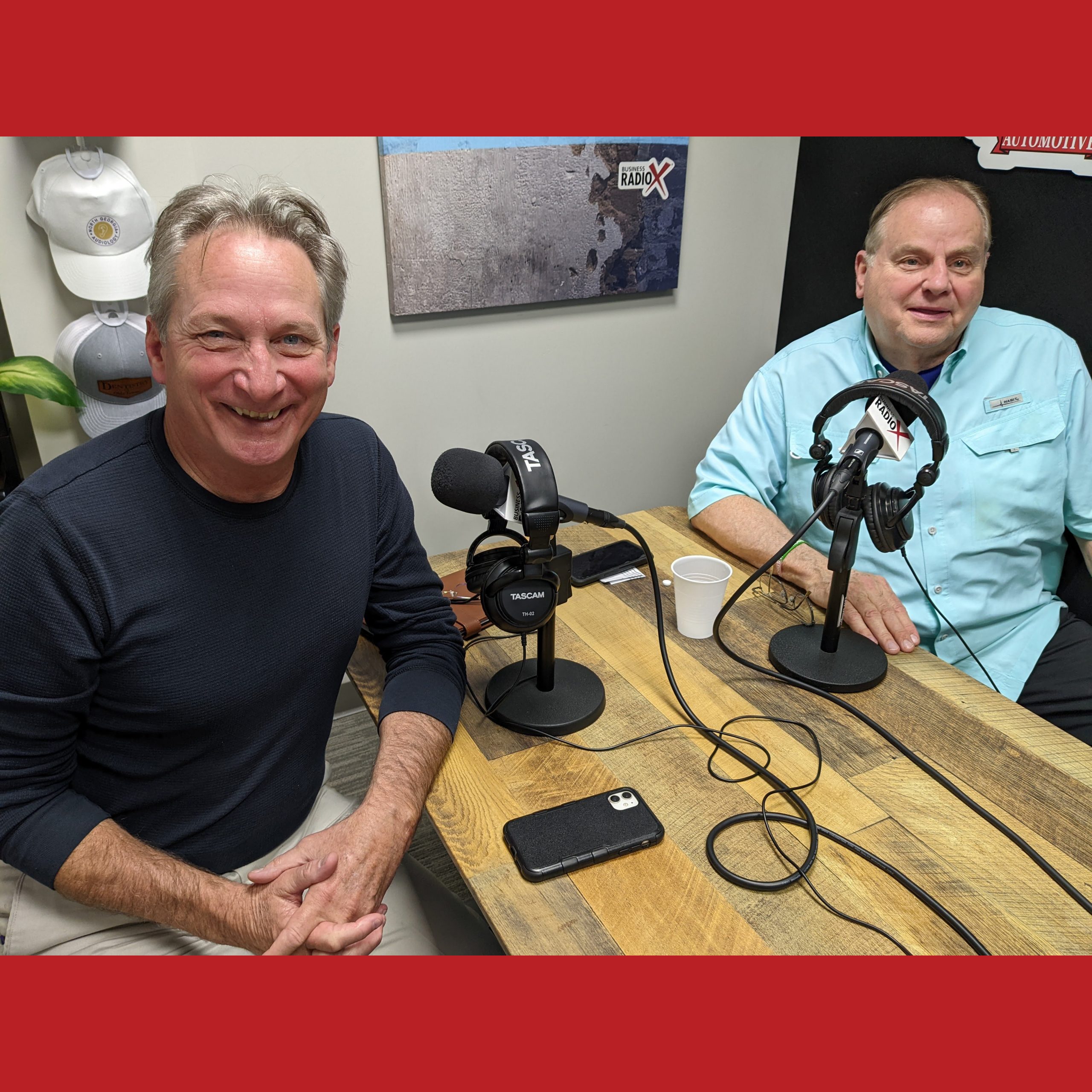
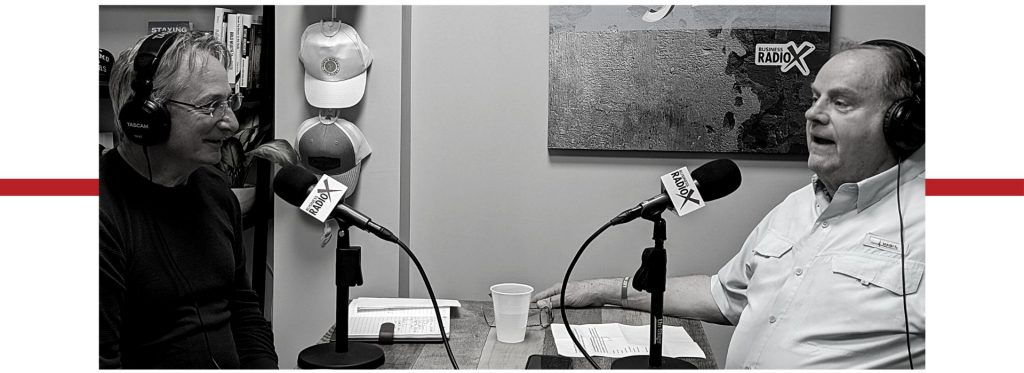
 Mike Sena, Owner of Mike Sena Advisors, Inc.
Mike Sena, Owner of Mike Sena Advisors, Inc.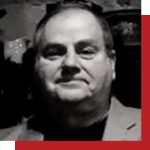 Jeffrey Snow, Commercial Specialist at
Jeffrey Snow, Commercial Specialist at 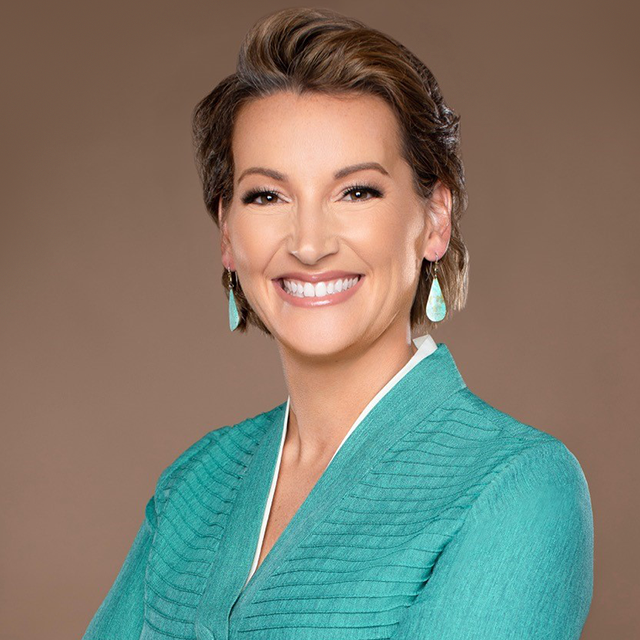

 Jean Durham, Master Certified Intelligent Leadership Executive Coach at
Jean Durham, Master Certified Intelligent Leadership Executive Coach at 
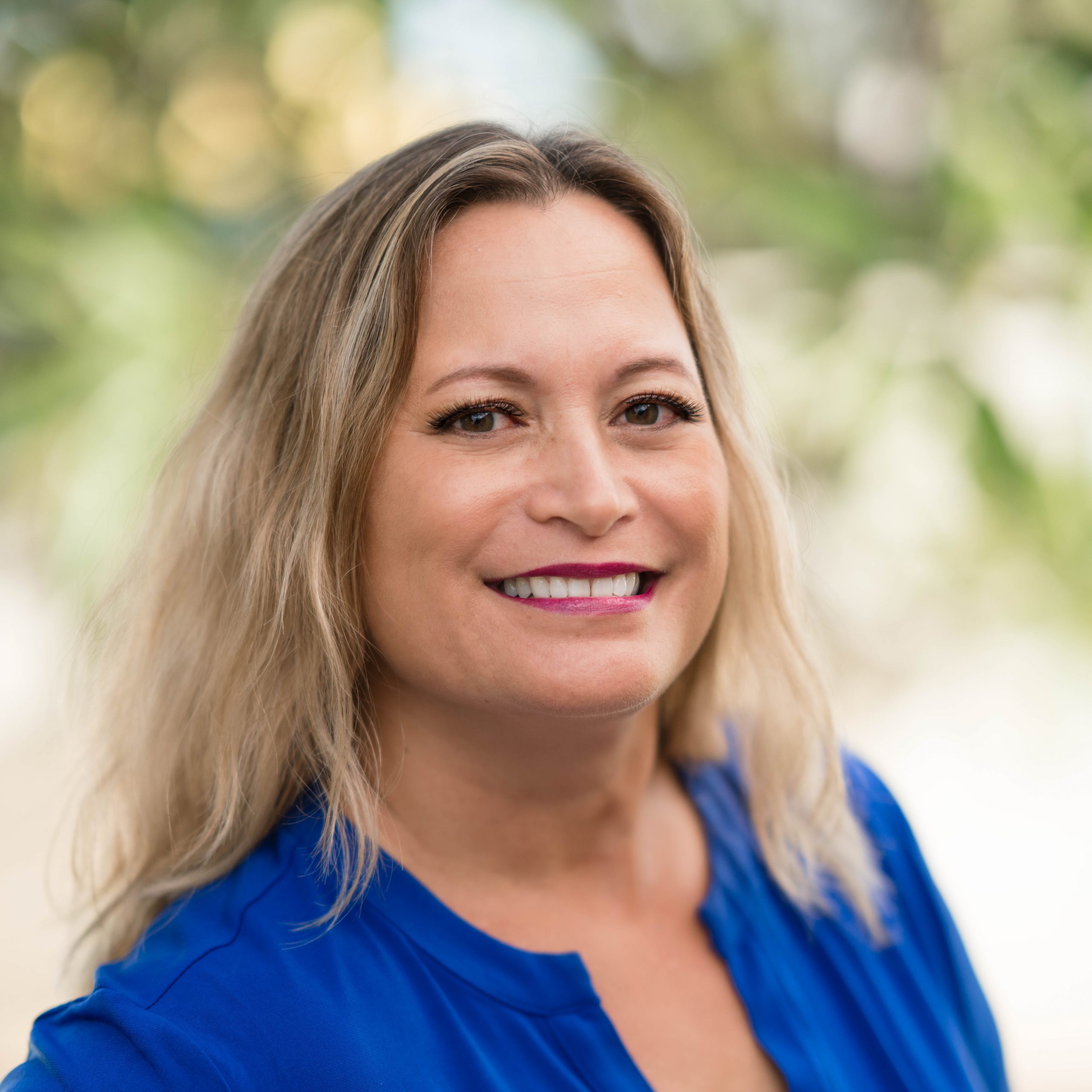

 Jammie Wong, Sales Training and Marketing consultant at
Jammie Wong, Sales Training and Marketing consultant at 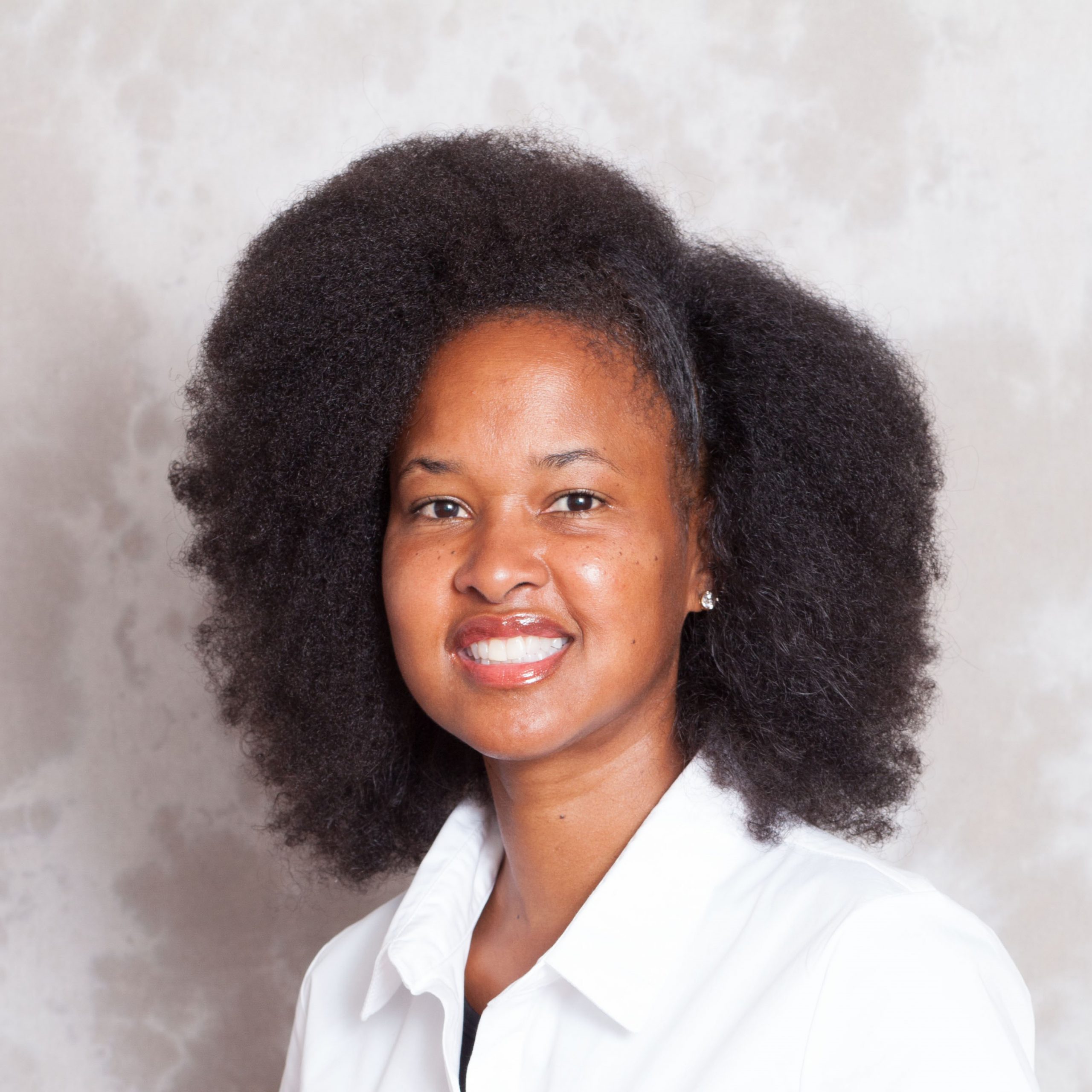

 Nekita Sullivan was born and educated in the Palmetto State of South Carolina. She is a graduate of Clemson University, Medical University of South Carolina (Charleston), and American Intercontinental University. She is a certified health education specialist, licensed physical therapist, certified hand therapist, certified yoga teacher, and yoga alliance certified yoga continuing education provider.
Nekita Sullivan was born and educated in the Palmetto State of South Carolina. She is a graduate of Clemson University, Medical University of South Carolina (Charleston), and American Intercontinental University. She is a certified health education specialist, licensed physical therapist, certified hand therapist, certified yoga teacher, and yoga alliance certified yoga continuing education provider.
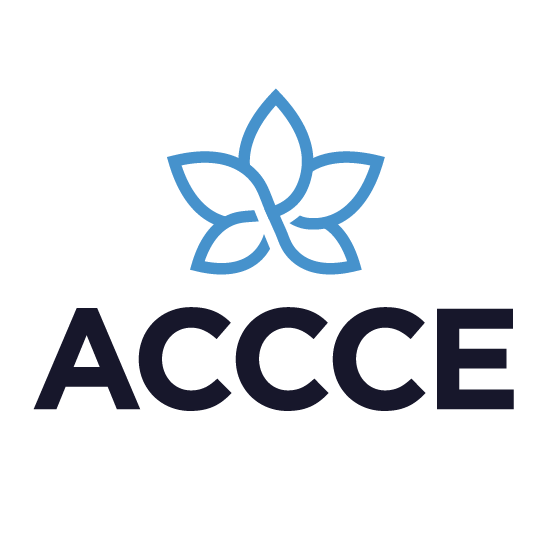
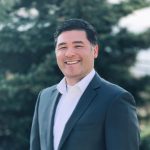 Brion Nazzaro is the President of the
Brion Nazzaro is the President of the 
 Scott Drake, Founder and Trainer at
Scott Drake, Founder and Trainer at 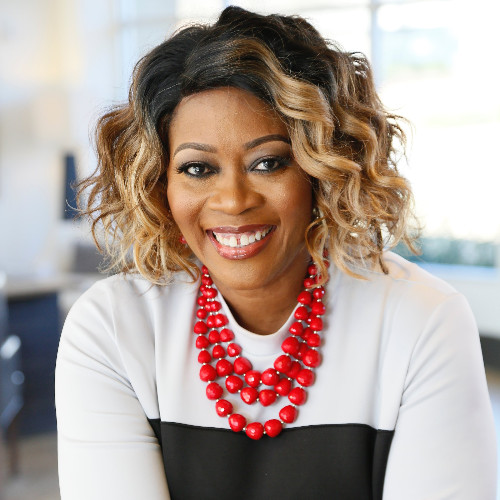
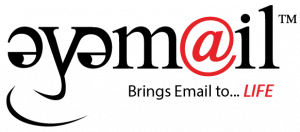
 As Founder and Chief EyeMail Officer of
As Founder and Chief EyeMail Officer of 